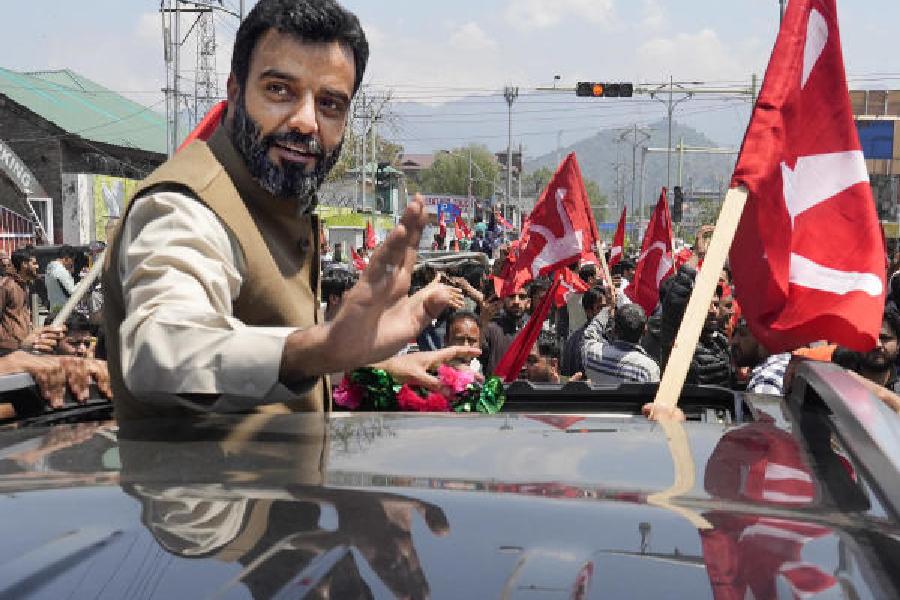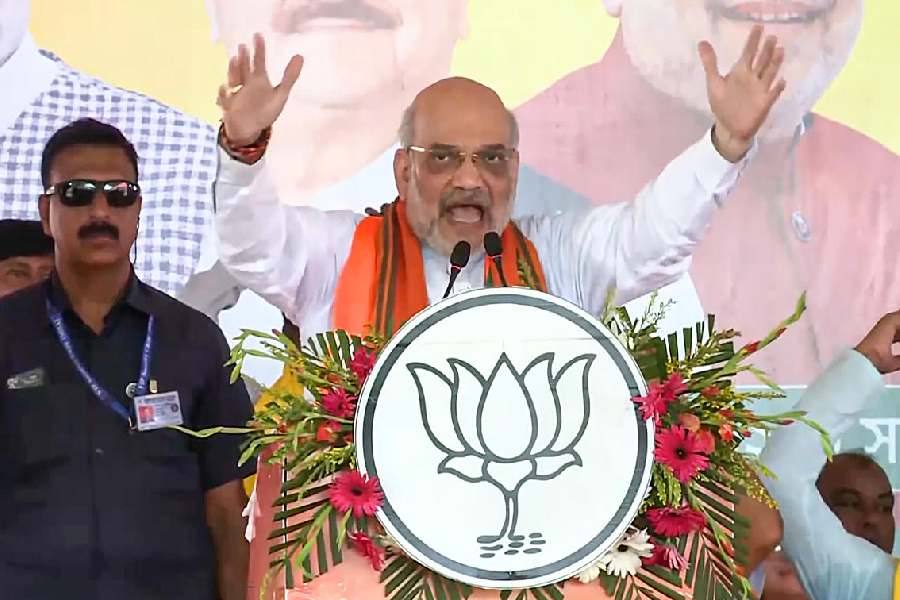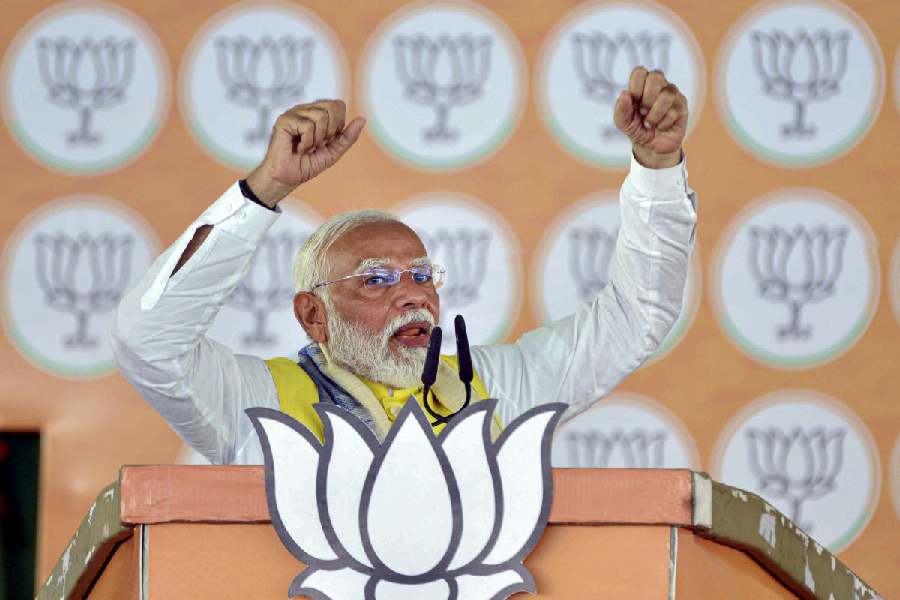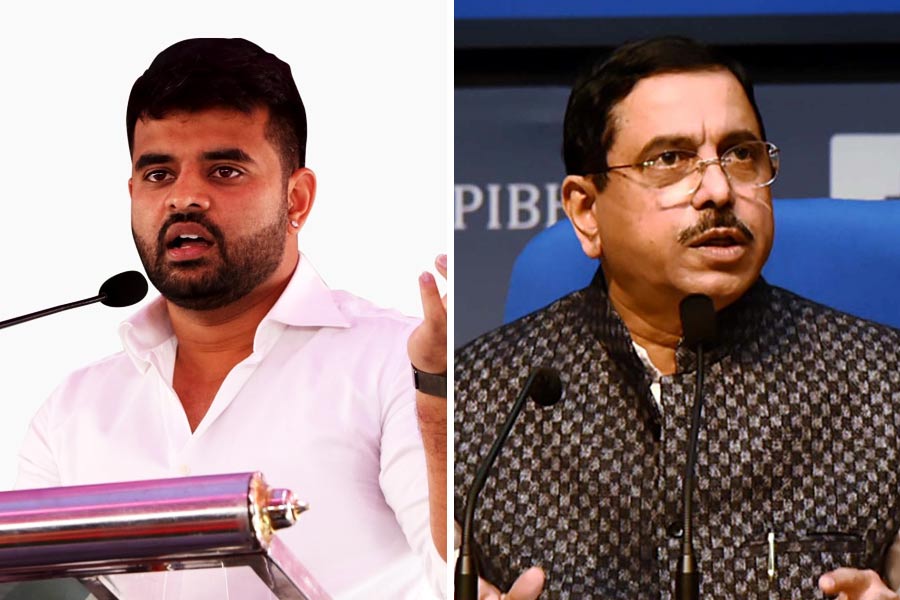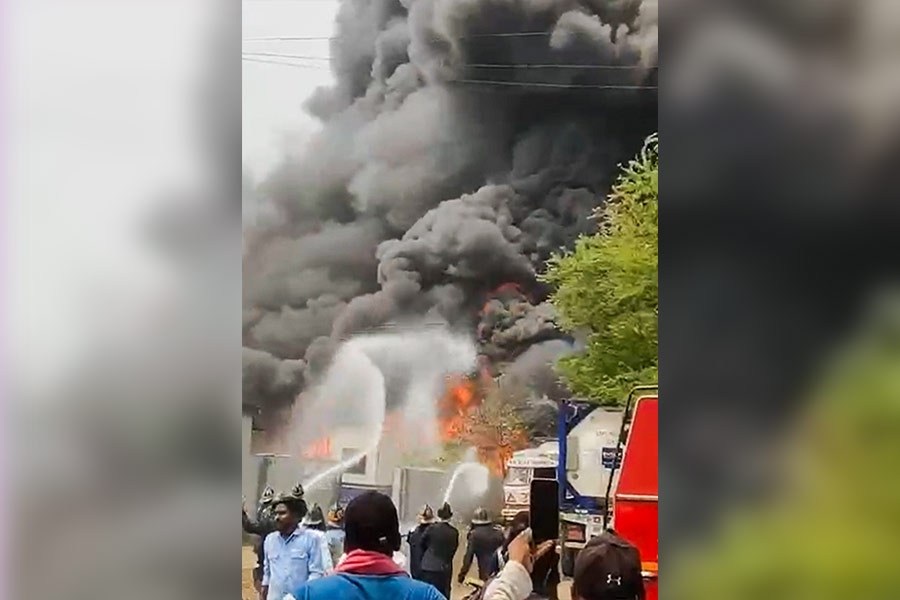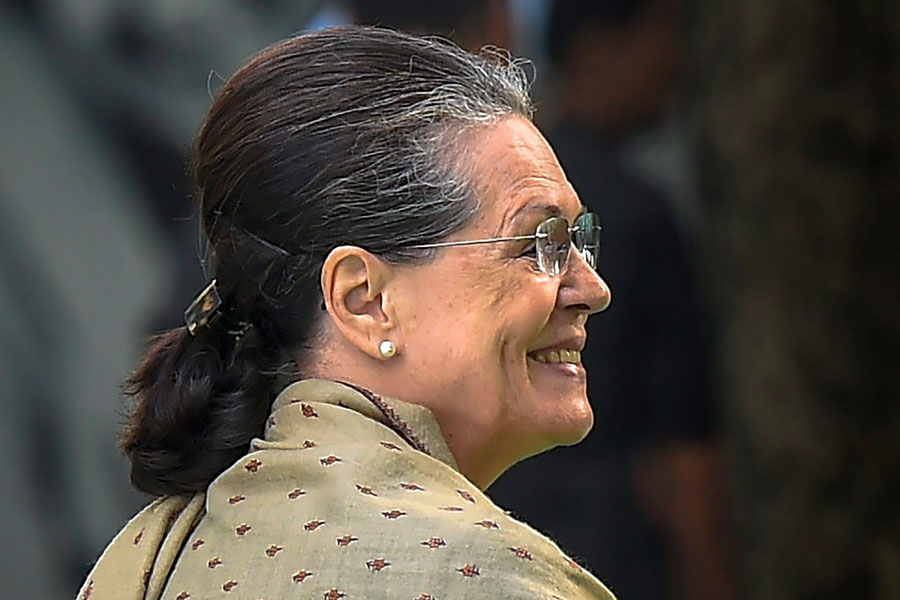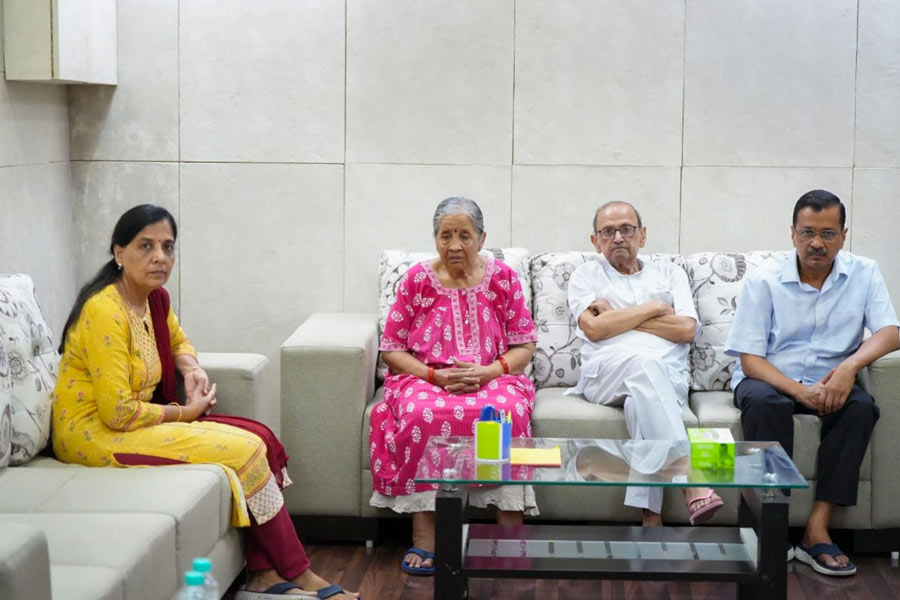The Shia-Sunni divide is centuries-old in Kashmir but when Aga Syed Ruhullah Mehdi, a Shia, got the National Conference mandate from the Srinagar parliamentary constituency last month, among the first things he did was to visit the shrine of 16th-century Sufi saint Sheikh Hamza Makhdoom.
The shrine is the foremost symbol of Sunni assertion in the Valley, located on the slope of Kohi Maran or Hari Parbat, a hill overlooking Srinagar city.
Ruhullah had earlier visited the shrine of Mir Shamsuddin Araqi, a Sufi from Iran and his own ancestor, a major symbol of Shia assertion, in Zadibal locality of Srinagar’s old city.
Shia-Sunni violence is rare in Kashmir but equally rare is for Shias or Sunnis to visit the religious places of each other, least of all the shrines of Sheikh Hamza and Mir Araqi by the followers of rival sects.
Although many of the earliest Sufi saints in Kashmir enjoy a wide following here which cuts across the Shia-Sunni divide, Araqi and Hamza remain sectarian figures in the public perception, disliked by their rivals but deeply revered in their own circles.
The nomination of Ruhullah for the Srinagar Lok Sabha seat by NC marks a significant milestone in the Valley’s politics.
A senior NC leader said around 60,000 of the 17-lakh electorate in Srinagar are Shias, the rest being mostly Sunnis.
Never before has NC, the grand old political party of Kashmir, fielded a Shia from any of the three Valley Lok Sabha constituencies, let alone the prestigious Srinagar seat, though several Shias bagged its mandate and won in Assembly seats. Ruhullah himself has represented NC thrice in the Assembly from Budgam.
It offers the backdrop to Ruhullah’s visit to the two shrines, as he tried to send across a message of unity and appeal to the larger Kashmiri Muslim identity, believed to be under threat in the wake of the scrapping of special status under Article 370.
“It is an opportunity for me to express the sentiments of people (against Article 370 abrogation) and against whatever was done to us. We were disrobed, our dignity and constitutional rights were snatched,” Ruhullah said at an event in Srinagar. In his dozens of rallies or meetings, he has forcefully argued against the 2019 changes.
Sunnis are an overwhelming majority in Kashmir, perhaps a reason for NC not to give a mandate to a Shia for a Lok Sabha seat in the past.
The other reason could be that Shias in Kashmir have been traditionally linked with the Congress. Kashmir has had only two Shia MPs, both from the Congress, but both won in controversial elections when NC, the only local major player back then, did not contest. One of them, Syed Ahmad Aga, was elected twice from Baramulla, in 1967 and 1971; the other, Ghulam Mohammad Mir Magami, won from Srinagar in 1996.
The followers of the two sects have reacted differently to the developments that followed the inception of militancy in 1989. Militancy has since remained a Sunni phenomenon, drawing only a handful of Shia militants to its fold, that too during the early years. Where Sunnis largely boycotted polls during the early years of militancy, Shias participated in numbers.
Over the years, Sunnis, mostly in rural areas, shunned their aversion to polls but the majority continue to boycott them in urban centres like Srinagar.
Some of the top Shia leaders, however, championed the cause of “Azadi” but divisions were more pronounced than among Sunnis. Ruhullah’s own family is a testimony to that. His father Aga Syed Mehdi was a Congress veteran who was killed by militants in an IED explosion in 2000. His elder uncle Aga Syed Hassan was a key Hurriyat leader.
The grapevine has it that New Delhi played up the divisions, trying to woo the Shias among Kashmiris and Gujjars and Paharis, two other major non-Kashmiri Muslim groups, to its side.
Srinagar is witnessing a triangular contest between Ruhullah, Waheed Para from the Peoples Democratic Party and Mohammad Ashraf Mir, from King’s Apni Party.
Sensing defeat, BJP has opted out of the race and is said to have put its weight behind Mir, but is careful not to do it publicly, lest it goes against him.
Ruhullah and Para have got the mandate for their stand on Article 370.
At one point, Ruhullah publicly took on his boss Omar Abdullah and resigned as the party’s chief spokesman after he felt Abdullah was vacillating on some issues.
Para bore the brunt of the government crackdown, with NIA jailing him for 18 months under the anti-terror law. He was granted bail by the high court which said the evidence gathered by the prosecution was “too sketchy” to deny him the relief.
The majority of Srinagar’s residents boycott polls but both candidates are appealing to them to shun their aversion for the “larger cause”. Indications are that the voting turnout, which stood at 14 per cent in 2019, will pick up this time.
Despite Ruhullah’s Shia background, he is seen as a heavyweight.
“If he wins it will be mainly because of Sunnis because there are not many Shias here. That will not only be a vote against Article 370 abrogation but a bigger slap for BJP as it will be proof of how people have left behind their sectarian prejudices for a greater Kashmiri or Muslim identity,” the NC leader said.
Mohammad Sayeed Malik, the first Kashmiri Muslim to become a correspondent of a national English daily — the Patriot in the 1960s, said the election would be a referendum on the 2019 changes.
“I think NC and PDP would have swept the election had they had contested in alliance. But since they are fighting against each other, the (anti-BJP) vote will split,” he told The Telegraph.
“I think he (Ruhullah) was even reluctant to contest (in protest against the 2019 changes). It took a lot of persuasion. Although NC has its committed vote bank in Srinagar and many Shias will vote for him, he has a wider appeal because of his stand and despite the sectarian prejudices that have prevailed all along.”
Shia scholar Aga Syed Mohammad Hadi, who usually avoids political discussions, said the developments since 2019 have prompted residents not to look at issues through the sectarian prism.
“Even before that (Ruhullah’s nomination), the winds of change towards reconciliation have been blowing. I think the last few decades, because of greater exposure to each other’s literature, have provided the best environment in Kashmir to look for common ground, rather than looking for negatives,” Hadi, who uses Kashmiri appellation to his name, said.
“Many Sunnis join my sermons and we freely exchange our views. Let Sunnis remain Sunnis and Shias remain Shias. I don’t expect many of their differences to go but we have a lot of bigger things in common. Political maturity demands we think as Kashmiris,” Hadi said.
Srinagar votes on May 13

